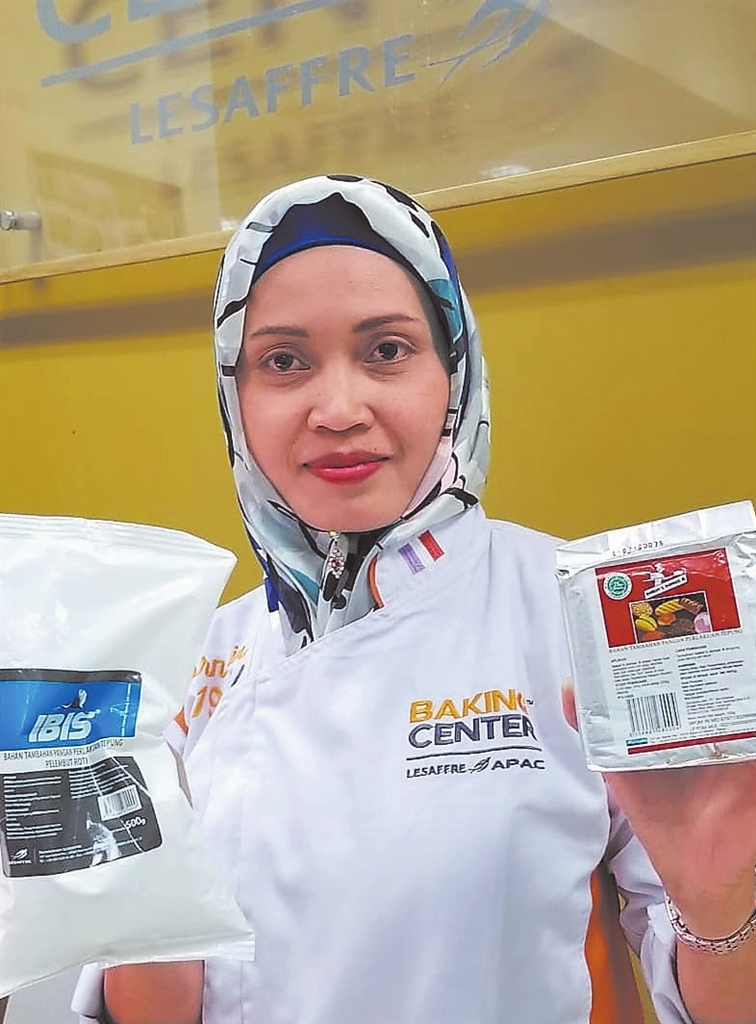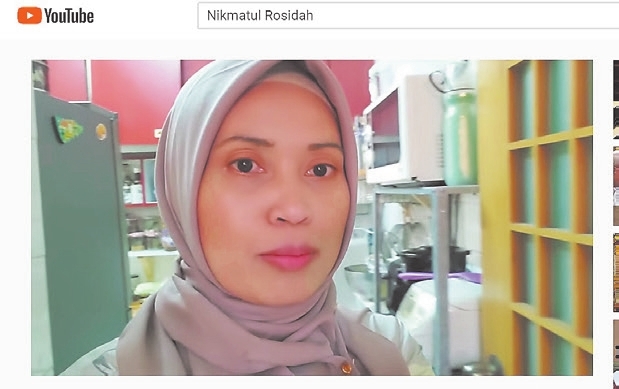


LIKE any other normal day for Nikmatul Rosidah, she gets off the subway pushing a blue shopping cart and heads directly into an Indonesian grocery store at Hong Kong’s Tai Wai market. “Are you Rosidah?” “Are you the YouTuber?” Several Indonesians at the market recognize Rosidah, raising their voices with excitement while talking with her in Bahasa. The story dates back to 2014, when a two-minute video of Rosidah’s daughter trying to blow out a birthday candle went viral on social media. Rosidah, 42, who came to China’s Hong Kong as a domestic helper 20 years ago, never pictured her life unfolding like this. As with many YouTubers, her channel started as a hobby, but in her case it was prompted by Cassandra, the older of her two daughters, being diagnosed with a brain tumor; as she stayed at home to care for her, Rosidah documented her recovery. By sharing her family life, home-made food and diversified cultures presented against the backdrop of Hong Kong, Rosidah has become one of the few top influencers on the online video-sharing platform YouTube, who has managed to find a sense of belonging and a home in Hong Kong, the place that has infused energy and flavor into her channel. “It is for fun and I enjoy it. If nobody watches it, I can watch it by myself in the future,” Rosidah, who now earns about HK$35,000 (US$4,400) per month and has 1.47 million subscribers on her channel, told Xinhua. Since then about 1,500 other videos have followed, several a week — “every day when I’m in the mood,” as she puts it. Those videos have earned her 1.4 million subscribers, making her one of Hong Kong’s top YouTubers; about 1,000 new ones join every day. She currently receives about 150,000 views a day, and plenty of her videos have several million views — the most popular of all, for fish curry, has 5.6 million. She recorded the videos with her phone to document her family’s memorable moments and uploaded them to the Internet to save storage space on her phone. She had no clue that she would become famous even in Malaysia, Indonesia and Singapore. “Basically she came to Hong Kong as a domestic helper and walked out of Hong Kong as a YouTuber,” said Rosidah’s husband Paul Dobson, 55, who comes from Canada. Rosidah bumped into her husband while riding an escalator in Kowloon Tong station during the Chinese New Year in 2004. They got married and had three children in Hong Kong. She is one of the few domestic helpers who chose to stay. Recalling her years working as a domestic helper, Rosidah said she had adapted herself to Hong Kong by imitating people by saying “zou-san,” good morning in Cantonese, in the wet market. “I felt welcomed in Hong Kong,” she said. Twenty years on, all of Rosidah’s friends whom she met at the domestic helpers’ training center went back to Indonesia. On camera has become her way of staying in touch with her “friends” in her mother tongue during her busy life as a housewife. “She’s at home with the kids, so sometimes she has the camera set up,” said Dobson. “It’s like she’s talking to her friends that aren’t here.” Despite the language and cultural differences, Rosidah’s recipes uploaded on her YouTube channel have been passed on to numerous Hong Kong families through Indonesian domestic helpers, connecting people from different backgrounds. “When she started making the bread, other helpers started baking the bread because they could understand her language. Their employers became so happy that a couple of farmers would give their helper so many vegetables to bring to our house all the time,” Dobson said. As China’s international financial hub Hong Kong has been admitting foreign domestic helpers since the early 1970s, followed by a prolonged labor shortage after years of rapid economic growth and the changing needs of local households’ domestic services in an aging society, according to the Research Office of the Legislative Council Secretariat of the Hong Kong Special Administrative Region (HKSAR). With the majority of them being females from the Philippines and Indonesia, the group in Hong Kong has been growing, as the ratio of foreign domestic helpers to overall workforce, according to the statistics compiled by the Census and Statistics Department of the HKSAR government, has almost doubled from 5.3 percent to 9.3 percent from 1996 to 2016. Hong Kong, as the backdrop of Rosidah’s channel, has been the glue for people who are looking for dreams or memories. Like most people, Rosidah’s first impression of Hong Kong was shaped by the movies of Jackie Chan or Andy Lau, while her channel is another version of Hong Kong for those who have not been here. For those who have already left, it is a time machine that can bring them back to the old days. “I can see Hong Kong without going to Hong Kong;” “I really miss the atmosphere of Hong Kong, from cooking to everything;” “I have lived in Hong Kong for 10 years, and this video can satisfy my longing for the atmosphere there,” people commented under her videos. “Hong Kong is really a magnet for her channel. It gives them something to work towards,” added Rosidah’s husband, saying that Hong Kong, as a highly reputed place of China, gives people more possibilities and hope of a better life. Talking about the future, Rosidah is hoping to have a bigger kitchen colored white and a separate cooking place for spicy food. “It does not have to be very big. Hong Kong size is okay,” she smiled. Both having spent almost half of their lives in Hong Kong, the couple said they would get homesick during long trips away but felt cured once they set foot in Hong Kong’s airport. During the interview with Xinhua, the smell of egg tart sneaked in from the Dobsons’ kitchen, a mini space that takes only three steps from the door to the furthest side. The family of five were sitting together, eating and talking, with a camera set up beside, in their village house surrounded by trees in Hong Kong’s Sha Tin district. After 20 years, Rosidah can still recall the time when she first came to Hong Kong alone, when she could not speak a single word of Cantonese. Now as a mother of three and the beloved wife of her Canadian husband, she is becoming a part of Hong Kong’s fabric, the international city with pineapple buns, fish eggs and Siu Mai, and the place she calls home. (Xinhua) | 
